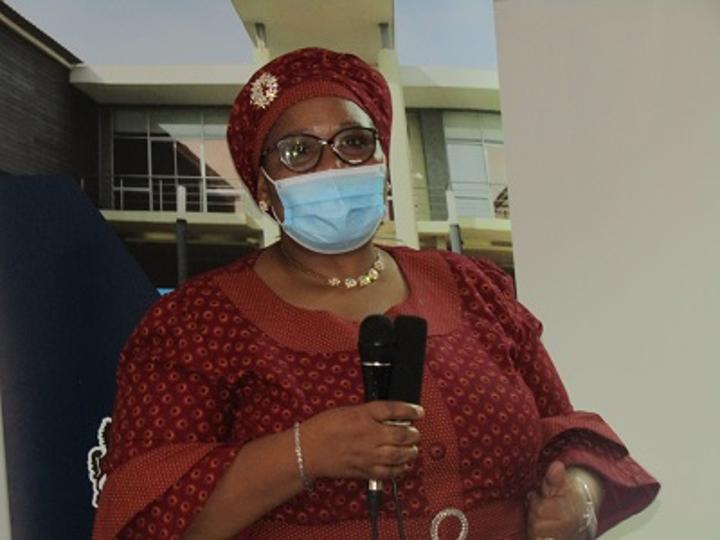Africa-Press – Lesotho. Ministry of Communications, Science and Technology gathered Principal Secretaries (PS) from different government ministries for review of the digital transformation
and business process reengineering project. The forum was also a highlight on the achievements on the e-Government Phase I Project which was implemented in 2014.
Ministry of Communications, Science and Technology Deputy Principal Secretary (DPS) ‘Mabataung Khalane said the digital transformation program is intended to
make all government services accessible to the citizens, through common service delivery channels that would eventually ensure efficiency, transparency, and
reliability of such services at affordable costs. Khalane said the program is being implemented in two Phases, where Phase I was funded by the African Development Bank with the tune of USD12.84 million,
amounting to over M183 million, while Phase II is financed with USD18.15 million, which is over M259 million. She indicated that Phase I will be completed in August 2021, saying it was not
completed in 2018 as it was expected. She added that it is worth mentioning that the ministry improved the country’s public service delivery through the establishment of a modern core e-Government
infrastructure. It fostered good governance through the use of Information and Communications Technology (ICT) among key ministries and government agencies.
It has contributed in strengthening access to government shared services, such as Data Centre facilities and it established an interactive information
portals, and facilitation of access to key e-Applications for the government. Khalane further said Phase II project was launched in September 2020 and is at its initial stage.
She said the objective of this phase is to drive digital finance and financial inclusion by improving access to reliable digital services, particularly among citizens living in rural, underserved and/or
unserved areas. To improve financial inclusion among unbanked citizens in Lesotho by developing digital payment infrastructure and strengthening digital
services ecosystem. To improve government skills to oversee and implement ICT initiatives and to increase data coverage in rural and those underserved and unserved areas.
She noted that the National Strategic Development Plan II (NSDP II) of 2018/19 – 2022/23 identifies technology and innovation as one of the four productive sectors that can contribute to the
economic development of the country. She said in 2014 the African Development Bank made negotiations with the Government of Lesotho which led to the initiation of Phase I e-Government Project.
“On average our citizens are becoming more technology savvy and would like to have
convenience in accessing services from the Government. The Government has to deliver services that are accessible to all citizens,” she said. She further
said neighboring countries are progressing very well on digitization and Lesotho does not want to be left behind. Technological developments brought by social
platforms, mobile revolutions, analytics and cloud computing raised expectations of citizens. Ministry of Communications, Science and Technology Project Coordinator Khiba Masiu said the Phase I project management
components were to strengthen core e-Government network infrastructure and to strengthen data centres to improve government portal and skills development
programmes. Masiu said among the achievements of Phase I project, through the component called strengthening Core Network Infrastructure, supply and installation of ICT equipment was made to 30 schools and each school was
provided with 40 laptops, Rachel server, projector, secure locker and two printers. “There was also provision of internet bandwidth connectivity for 5year to 33 schools in the rural areas,” he said.
Speaking on behalf of Office of the Government Secretary (GS) Emmanuel Lesoma said recently Lesotho is witnessing a veritable explosion in communication and
information technology being the rapid growth of the internet and mobile telecommunication, the country’s trend of liberalization and the convergence of
technology and services. Lesoma added that the new Lesotho is undergoing a fundamental transformation in all aspects of people’s lives including knowledge
dissemination, social interaction, economic and business practices, political engagement, media, education, health, leisure and entertainment. He further said today the population has increased and public administrations
should use appropriate technology to enhance transparency, accountability and efficiency in the provision of services. Lesoma noted that the government has
made informed decision to launch the e-Government services. However, he said it seems true that related strategies are implemented separately from each other since there are no standards for such services, adding that for the sake of efficiency, it is now time to introduce e-Government.






